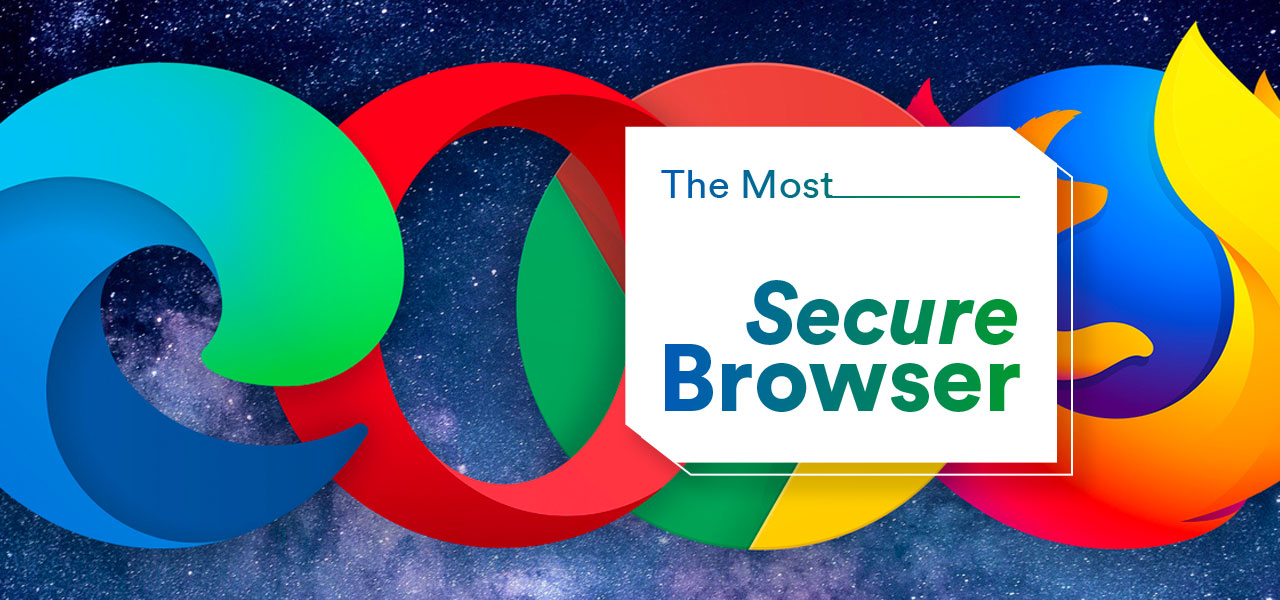
Everyone loves Google Chrome, and with good reason. It is one of the most accessible and plug-in rich browsers in the world. However, there is a drawback to this ever so popular browser, and that is that does not offer the most secure system for keeping your online data safe.
Google is the king of targeted advertising, which relies on observing users’ activity and creating profiles for them. These profiles indicate the types of adverts individual users are likely to respond to, and is the reason why you might browse an online shop for a specific item, and later see adverts for similar items all over your browser. There is a lot of value for Google in knowing what you’re doing on the internet, but it does mean that Google Chrome is not to be trusted completely with your data. Microsoft Edge and Safari also have privacy concerns.
This doesn’t mean that these browsers aren’t safe to use, and you don’t need to worry about sensitive information being accessed – at least, not at the hands of the browser provider itself. But your online privacy – which sites you choose to visit and the number of times you spend on them – are all too valuable for these browsers to give up. If you do use one of these browsers, make sure to install a reliable VPN to add a layer of protection when browsing the web. These are the ones we recommend:
Need a more secure web browser? We’ve compiled a list of the most private web browser options on the market.
Most Secure Browser Providers
All of these browsers are open source. Another way to ensure extra security when browsing the web is to use Linux OS.
Read on to learn about the many features of our 5 favorite secure web browser services.
1 – Firefox
Firefox is one of the best private browser options available – and it’s free! And it’s as secure, if not more so, than Chrome. The newest version ‘Firefox 57 Quantum’ is packed with features and benefits, such as Tracking Protection, with defense against canvas fingerprinting in the near future. Unlike Chrome, Firefox does not spy on your activity in order to create an ad profile of you.
To maximize Firefox’s capacity to be the most secure browser, you’ll need to optimize the settings and install some privacy add-ons, but this isn’t difficult.
Benefits
- Open source software
- Fully audited
- Plenty of add-ons designed for extra privacy
- Always evolving and fixing security problems
- The interface is complete with Tracking Protection
- Available on Windows, Mac, Linux, and Android
Drawbacks
- Telemetry
- Mozilla (its owner) has made some questionable decisions regarding profit in favor of privacy
- Not 100% private unless used with various add-ons
- Doesn’t work properly on iOS
2 – Tor Browser
The Tor community is designed for anonymity and accessing blocked content, including pages on the Dark Web. The main purpose of the Tor Browser is to provide powerful protection for members of the network, but it can be used by regular users. The foundation of Tor is Firefox, which in our view is the best private browser available.
Benefits
- Open source software
- Firefox reinforced with layers of privacy and security
- Prevents canvas fingerprinting
- Regular updates to deal with any issues
- Similar effects to a manually enforced Firefox
- Can be used even if you don’t have Tor
- Available for Windows, Mac, and Linux
Drawbacks
- It’s not as feature-rich as the standard Firefox browser
- You can’t download add-ons without somewhat compromising your privacy
- Slower connection speeds than the most recent version of Firefox
- Designed for Tor network – not general users
3 – Waterfox
Another secure web browser that has a Firefox base. It is quite similar to the older version of Firefox – Firefox 56, and there is no sign of it evolving until 2019 or later. This means, however, that you can use both old and new Firefox add-ons with this service.
Benefits
- Open source software
- Back to basics, solid Firefox
- Gets rid of worrying elements of Firefox to protect privacy
- Can sync with your Firefox preferences
- Provides Tracking protection
- Available for Windows, Mac, Linux, and Android
Drawbacks
- Slower than Firefox Quantum
- Fixed to the older Firefox 56, which could lead to security problems in the future
- Some issues with stability have been reported
4 – Brave
Brave is quite a controversial choice of private web browser. While there are still ads, they are considered ‘good ads’. All users have the chance to opt-in and profit from ads if they choose, but criticism of this says that it is not a positive tool for promoting online anonymity.
Benefits
- Open source software
- Includes an ad blocker
- Fights against canvas fingerprinting
- Offers Tracking protection
Drawbacks
- The risk of Chromium code
- The somewhat hypocritical ad-replacement system
5 – Pale Moon
Pale Moon has its roots in Firefox, but the code is, unlike in the case of other private web browser providers, dramatically different from that of its origins. This means that some Firefox add-ons won’t work with it, but there is an increasingly large pool of add-ons designed specifically for Pale Moon. Its interface is very easy to customize so you can change how it looks. One of the things that make Pale Moon such a credible secure web browser is that it doesn’t come with loads of extra features that can be invasive to your privacy.
Benefits
- Uses open source software and is community-centric
- Lightweight design for accessibility
- Easy to customize
- Can be used with multiple Firefox add-ons
- Frequently updated and issues dealt with
- Available for Windows and Linux
Drawbacks
- It isn’t always compatible with current web practices
Best Private Browser Options – A Summary
If it’s important to you to stay private while using the web, choose one of the most secure browser options we have listed above. Each of them has an open source system which means that, compared to Chrome, Safari, and Edge, they are better at protecting your privacy.
You can be sure with other reputable options like Chrome that you are getting a secure web browser, but you can’t guarantee that it is a PRIVATE web browser.
We recommend Firefox as the best private browser for the everyday user. It has quick connection speeds and is known for its sophisticated privacy and security measures. On the other hand, Firefox is not without its issues, so consider the other options if you want to steer clear of Firefox.






